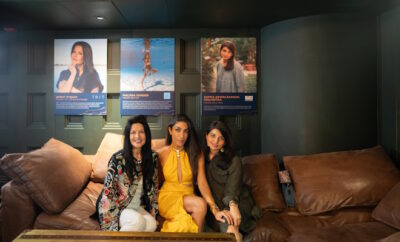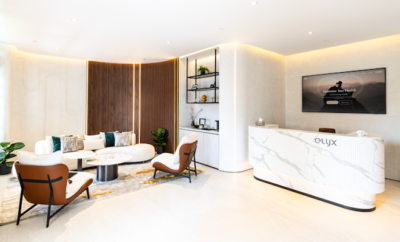
Health x Wellness
Eye-Strain Nation: Why Singaporeans Over 40 Are Zooming, Squinting and Still Ignoring Presbyopia
A new ACUVUE study shows that while most adults recognise age-related vision changes, many still choose to “tahan” instead of seeking proper correction. ACUVUE wants that to change.
Stretching your arms to read a menu. Snapping a photo so you can zoom in. Bumping up the font size until your screen looks like a headline. Sound familiar?
According to a recent ACUVUE® survey commissioned by Johnson & Johnson Vision, nine out of ten adults over 40 in Singapore are experiencing symptoms of presbyopia — the age-related condition where near vision becomes blurry. But despite recognising the issue, over a third still choose not to correct it.

Denial and Digital Fatigue: The Modern Reality of Middle-Aged Vision
Presbyopia isn’t new, but our digital lives are making it harder to ignore. From toggling spreadsheets to reading messages under glare, eye strain is becoming a daily companion. Sixty-eight percent of surveyed Singaporeans say their changing vision is inconvenient; more than half admit to relying on stopgap measures like zooming in on screens or stretching their arms out.
“Many people don’t realise it’s presbyopia,” said Mr. Ken Tong, an Optometrist and Board Member of the Optometrists and Opticians Board Singapore. “They think it’s just tired eyes or too much screen time. It doesn’t occur to them that their focusing ability is changing with age, because presbyopia isn’t commonly talked about or understood.. There’s also emotional resistance — needing optical help feels like a sign of ageing, and that discomfort keeps people from getting the care they need.”
Who’s Most Affected?
The survey highlights working adults aged 38 to 55 as particularly vulnerable — especially those in jobs requiring long hours of near work, from finance and IT to education and healthcare.
It’s not ignorance; it’s lifestyle. People are too busy to prioritise vision until symptoms disrupt their routines.
And when they do seek help, glasses often feel like a compromise. Nearly half of non-correcting respondents say spectacles are uncomfortable or cumbersome. Even among occasional glasses wearers, 71 percent wish they could do without them altogether.
Breaking Misconceptions and Cultural Barriers
There’s also a lingering belief that eyes become dependent on correction — which isn’t true. Others choose to tahan (endure) the blur, believing it’s just part of ageing. The stigma around reading glasses or progressive lenses often outweighs clarity.
“In Singapore, many people still associate presbyopia with “being old,” and that can be uncomfortable. (Some) patients feel embarrassed wearing glasses in meetings or think correction will make their vision worse, (others) avoid progressives because they didn’t want visible signs of ageing,” shared Mr. Tong. “Self-diagnosing with off-the-shelf readers not only delays proper care, but could cause people to miss signs of other conditions.”
A Clearer Way Forward
“We need to shift this narrative. Presbyopia is a natural, expected part of ageing — just like getting wiser or needing a bit more rest,” added Mr. Tong about getting rid of misconceptions. “When addressed early, people can continue living fully — working, reading, enjoying hobbies — without the daily frustrations. Getting the right correction isn’t about looking old; it’s about seeing clearly and living well.”
With its ACUVUE® OASYS MAX 1-Day Multifocal contact lenses, Johnson & Johnson Vision hopes to shift the narrative — making proper correction feel less like a compromise and more like a lifestyle upgrade. Backed by new technology, these lenses offer clarity, freedom, and comfort without the bulk or visibility of glasses.
To lower the barrier to entry, patients can request free trial lenses through eye care professionals, giving Singaporeans a chance to explore their options without upfront cost. Interested persons can visit https://www.acuvue.com/en-sg/products/acuvue-oasys-max-1-day-multifocal/ to find an eye care professional near them. (Note: eye examination fees may apply, do check with the eye care professional at the start.)
Reaching the Digital Generation
Knowing Gen X and Gen Y may not resonate with traditional healthcare messaging, ACUVUE is working with influencers and digital platforms to share relatable lifestyle-led stories of presbyopia — not as a medical issue, but a modern inconvenience with a practical solution.
“Presbyopia should be seen as a natural transition — like needing more rest or getting wiser,” said Mr. Tong. “Early correction isn’t about looking old. It’s about seeing clearly and living fully.”

Infographic courtesy of ACUVUE.
Additional quotes and responses provided by Mr. Ken Tong from Eyesight.sg.






